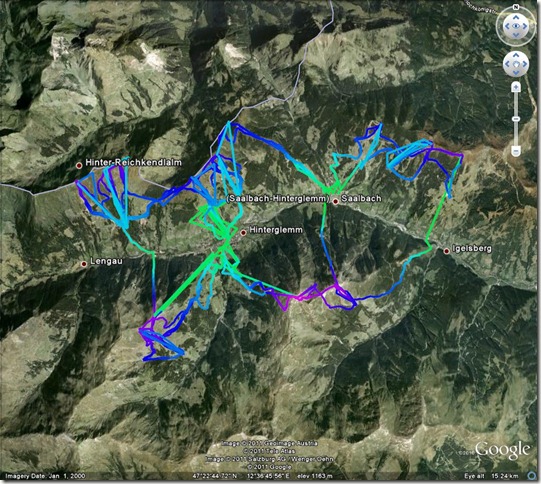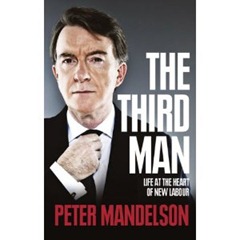 |
| A view up the Saalbach-Hinterglemm valley, Hinterglemm is in the distance |
Mrs SomeBeans and I have been skiing again, staying in Hinterglemm in the SkiCircus area of Austria. Hinterglemm is the upper of the two main villages in a valley running east-west, Saalbach is the larger village and gets more sun but the lifts are spread out around the village. We went with Inghams, flying from Manchester to Salzburg, the transfer time is about 2 hours, with a stops at Zell am See and Saalbach which are both relatively close. Salzburg airport can’t really cope with the number of package tour flights it gets in a short period.
Conditions last week were fantastic, for the first four days of our holiday we didn’t see a single cloud, temperatures were fairly low but there was no new snow during the week. Skiing was best between about 8:30am-10am before most people, other than the locals, had got out on the slopes. I suspect getting up at 7:30 every morning is not most people’s idea of a holiday.
Hinterglemm has a lot of lift capacity out of the village, a short gondola ride takes you to a set of four chairlifts on the south-facing side of the valley and two longer gondolas take you to summits on the north facing side of the valley. The link to Saalbach on the south side of the valley is a bit odd: from Saalbach it an an old 3-seater chair lift, followed by a long t-bar drag lift and an old 2-seater chair lift. The return from Hinterglemm the link is a bit easier but still involves a short t-bar. A nice range of skiing with some big wide pistes, pistes through trees and a few long black runs on the north-facing side of the valley which we didn’t try out. The area is pretty well linked up with some circular routes, and the ability to get to pretty much anywhere in the linked are in a couple of hours at most.
We stayed at the Hotel Glemmtalerhof in a large north-facing room looking towards the Reiterkogelbahn which could have accommodated 5 people. The hotel is right in the middle of the village with only a short (~200m) walk to either the Reiterkogelbahn taking you onto the south-facing slopes or the Unterschwarzachbahn taking you to the north-facing slopes. Food was fabulous and overall a good hotel. Drawbacks were that is was a bit noisy, since it sat on the middle of the village and there seemed to be an awful lot of smoking being done in the reception, cafe and bar area. Across the valley, right next to the Reiterkogelbahn, was the Hotel Alpine Palace Wolf which looked very posh and maybe worth a go in future.
Some of the other guests were a little odd: Sunday night as Gala dinner night featured a dessert buffet, which they ate from copiously pretty much all the way through the meal. Mrs SomeBeans, qualified to teach food hygiene, observed sufficient prodding and sniffing of the desserts that she preferred not to partake.
Once again we were plagued by “other people”. This time the party who didn’t realise that “Boarding at gate 7” meant: “get on the plane”, and one of whose children spent the flight gently pummelling my back through the seat back – I was calm since I decided to treat it as a free massage!
Overall a very good holiday with some fabulous skiing: this trip was unusual in that we were able to travel in term time – normally we are restricted to school holidays. I suspect the lift system in SkiCircus copes fairly well with February half-term, so might give it a go then next year.
A selection of photos:
 |
| This is “twinkly snow”, as you ski past it the ice crystals twinkle. |
 |
| Mrs SomeBeans and I on a chairlift, we’re a bit camera shy |
 |
| Great snowfields near the top of a mountain |
 |
| The Leoganger Steinberge, a panoramic view from Wildenkarkogel |
 |
| Looking towards Hinterglemm,invisible over the edge, with pretty clouds and icicles |
 |
| Obviously I captured GPS data, we covered about 180 miles in 7 days including uplift |
More photos here, along with captions.





